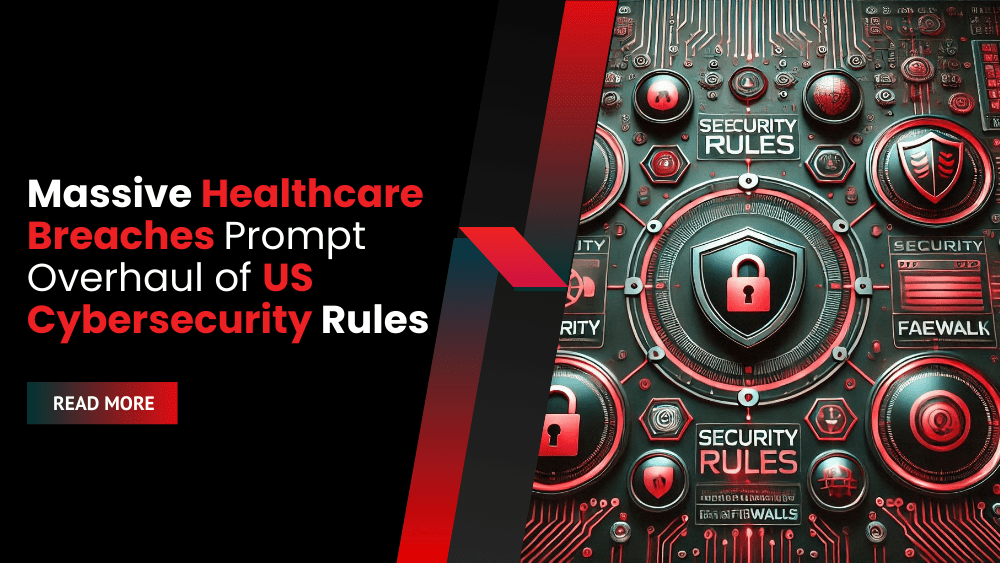Massive Healthcare Data Breaches Force Overhaul of US Cybersecurity Rules
The United States is undertaking a significant overhaul of its cybersecurity regulations in response to a dramatic increase in healthcare data breaches. The Department of Health and Human Services (HHS) has proposed substantial updates to the Health Insurance Portability and Accountability Act of 1996 (HIPAA), aiming to bolster the protection of patients’ sensitive health information (PHI). These proposed changes, spearheaded by the HHS’ Office for Civil Rights (OCR), are expected to be finalized within 60 days.
Strengthening HIPAA: New Cybersecurity Measures for Healthcare
The proposed amendments to HIPAA introduce stricter cybersecurity rules for healthcare organizations. Key requirements include mandatory encryption of protected health information (PHI), the implementation of robust multi-factor authentication (MFA), and the segmentation of networks. Network segmentation is a crucial security measure designed to limit the impact of a breach by preventing attackers from easily moving laterally across a network. This will make it significantly more difficult for malicious actors to access and exfiltrate sensitive data.
The HHS’s proposal directly addresses the escalating threat landscape: “In recent years, there has been an alarming growth in the number of breaches affecting 500 or more individuals reported to the Department, the overall number of individuals affected by such breaches, and the rampant escalation of cyberattacks using hacking and ransomware,” the proposal states.
The department expresses serious concern about the rising number of breaches and the substantial harm they inflict.
High Costs, Higher Stakes: The Economic and Security Implications of Healthcare Breaches
Anne Neuberger, the White House’s deputy national security adviser for cyber and emerging technologies, highlighted the urgency of these updates, emphasizing that the surge in ransomware attacks and massive healthcare breaches targeting hospitals and individuals in recent years necessitated this action. She underscored the significant financial implications, estimating costs of approximately $9 billion in the first year and over $6 billion annually for the subsequent four years. However, she stressed that the cost of inaction is far greater: “The cost of not acting is not only high, it also endangers critical infrastructure and patient safety, and it carries other harmful consequences,” Neuberger stated.
Real-World Impact: The Ascension Data Breach
The severity of the healthcare data breach problem is exemplified by a recent incident involving Ascension, one of the largest private U.S. healthcare systems. Ascension notified nearly 5.6 million individuals that their personal and health data had been compromised in a May Black Basta ransomware attack.
The attack crippled the system, forcing employees to resort to manual record-keeping for medications and procedures due to the inaccessibility of electronic records. The disruption extended to emergency medical services, which had to be diverted to other facilities to avoid delays in patient care. This incident underscores the devastating consequences of successful cyberattacks on healthcare providers.
The Need for Enhanced US Cybersecurity Rules in Healthcare
The proposed updates to HIPAA represent a critical step toward enhancing the cybersecurity posture of the U.S. healthcare sector. By mandating encryption, multi-factor authentication, and network segmentation, these regulations aim to significantly reduce the risk of future healthcare breaches and protect the sensitive data of millions of Americans.
The substantial financial investment reflects the recognition that robust cybersecurity is not merely a cost but a vital necessity for patient safety and the integrity of the healthcare system. The implementation of these strengthened US cybersecurity rules is a direct response to the alarming increase in healthcare breaches and the urgent need to protect patient data from increasingly sophisticated cyberattacks.
The long-overdue update to the 2003 HIPAA security rule, last revised in 2013, reflects a commitment to adapting to the evolving threat landscape and safeguarding sensitive healthcare information.









